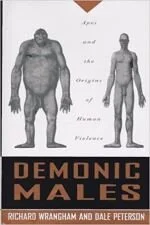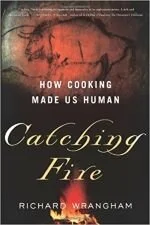Episode 05: Richard Wrangham
What Primate Behavior Can (and Can’t) Tell Us About Human Behavior
How can the distinct habits of chimps and bonobos inform us about human evolution and behavior?
Today we speak with Richard Wrangham, a research professor in the Department of Human Evolutionary Biology at Harvard. For more than three decades, the English anthropologist, primatologist, and author has studied primate behavior as it relates to human social behavior, evolution, and warfare. Richard Wrangham is also the founder of the Kibale Chimpanzee Project.
In this episode, we’ll hear more from Richard about the difference between chimpanzees and bonobos and how each species can help us understand human nature. We’ll also learn more about the domestication of animals and how violence is a commonality across species.
Episode Quotes:
On how Bonobos are different from Chimpanzees
“It's a society in which the males have been trained to not try and take liberties with the females. And so important is the dominance of the females that if you look at which males achieve dominance among other males, it is almost always a male who's got a living mother, who herself is pretty dominant. And because she helps him in his interactions against all the males, that help is really vital.“
On the role of fire in human development:
“Fire was the thing that changed us from an Australopithecine into Homo. It changed us from being an ape into a very early kind of human. It gave us our anatomy, it gave us our digestive system, it gave us a way to [...] do other things with our time, spend more time making tools or exploring the environment, hunting[...] So, fire made us Homo and then I think that language made us sapiens.“
On the fossil record of domestication:
“When we go back in time and see, as we do our ancestors with increasingly broad faces, as they go back, we can be rather confident in reconstructing that they were increasingly aggressive, reactively, aggressive, go back. So you've got those icon anatomical changes. You've also got genetic changes.“






